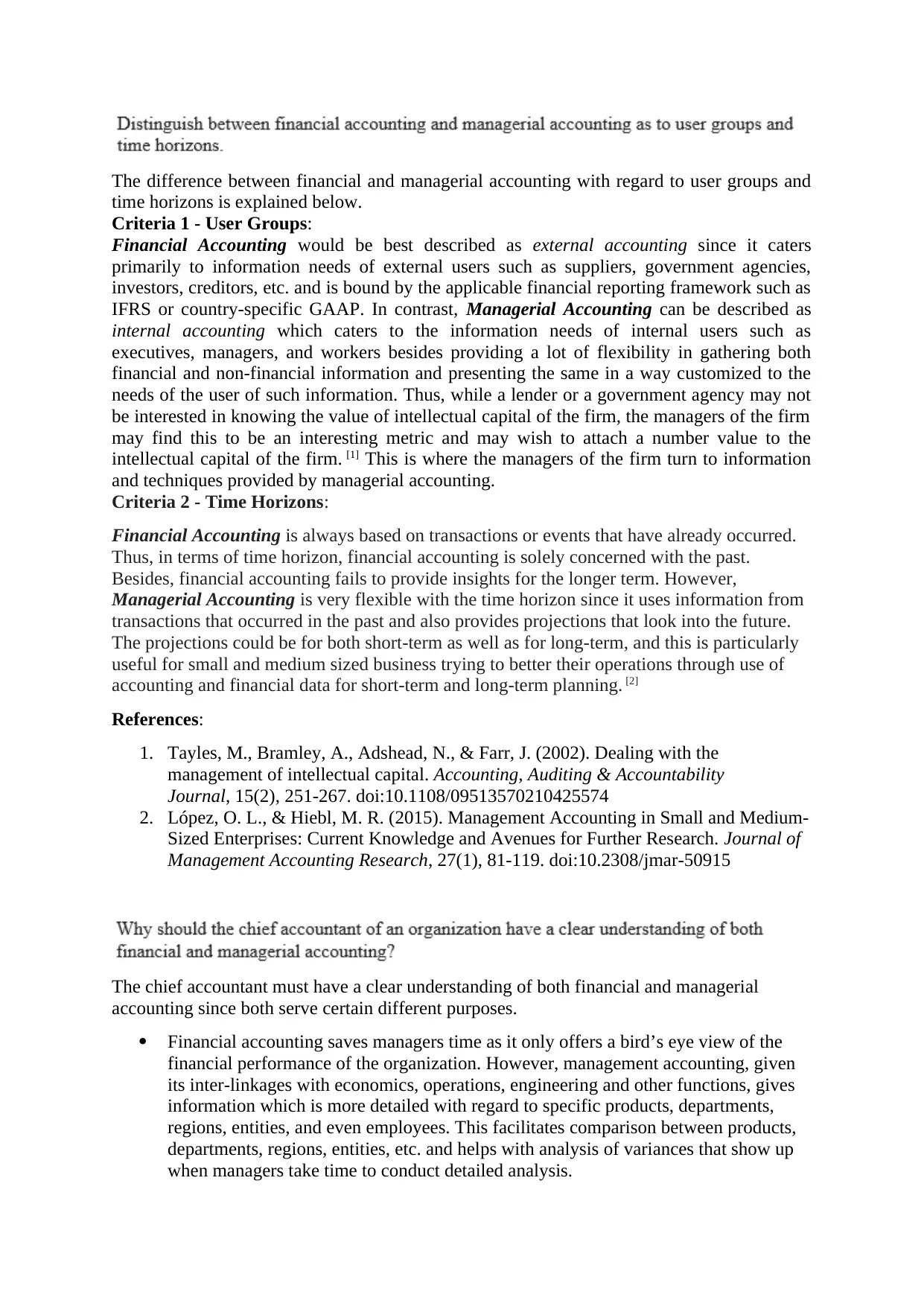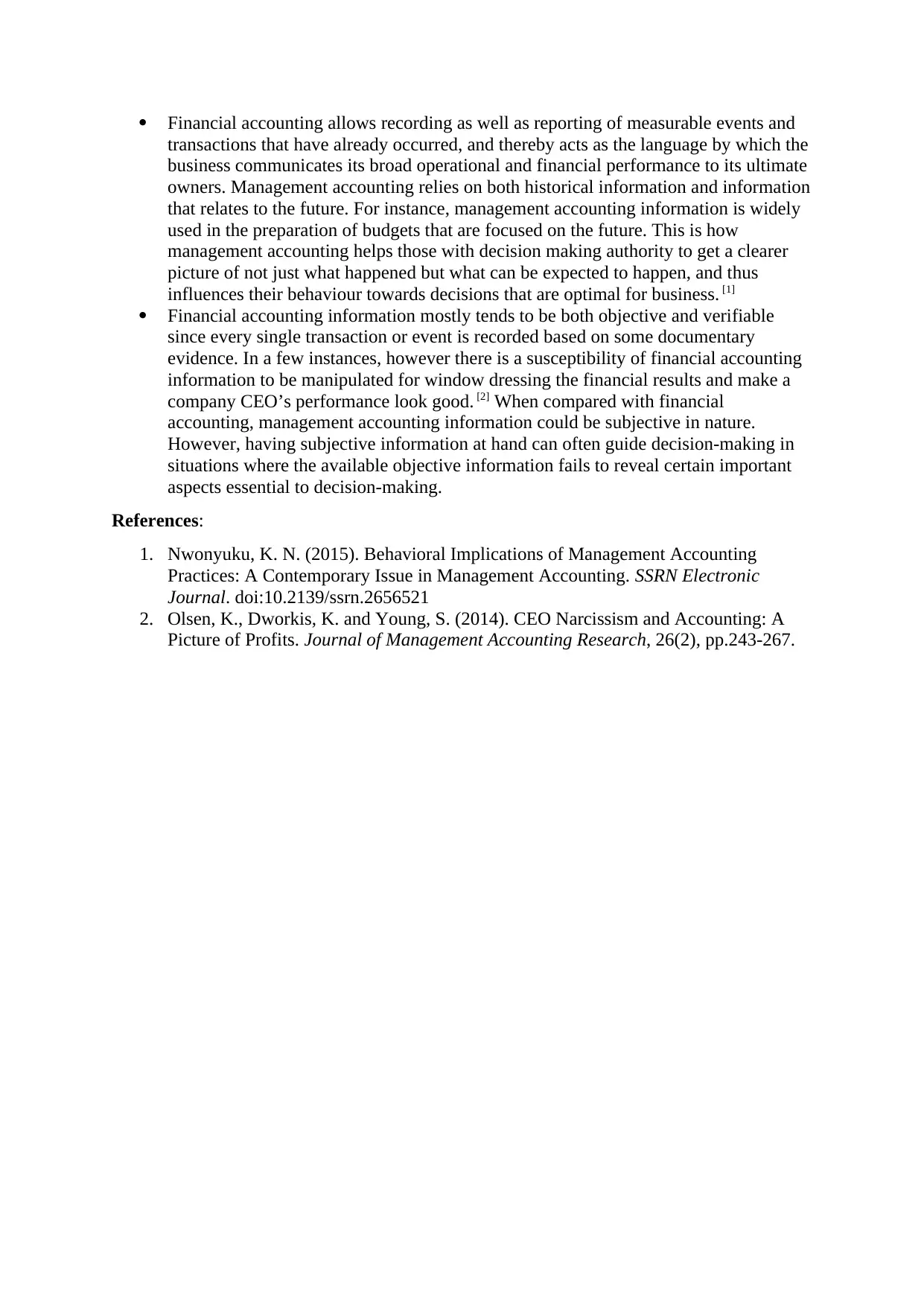The main difference between financial and managerial accounting lies in their purpose, user groups, and time horizons. Financial accounting is primarily for external users such as investors, creditors, and government agencies, focusing on past transactions, while managerial accounting caters to internal users like executives and managers, providing insights into the future through projections. Managerial accounting also provides more detailed information about specific products, departments, or regions, allowing for comparison and variance analysis. Additionally, financial accounting is based on objective, verifiable data, whereas managerial accounting may involve subjective information, but this can guide decision-making in certain situations.
![[object Object]](/_next/static/media/star-bottom.7253800d.svg)
![[object Object]](/_next/static/media/star-bottom.7253800d.svg)

